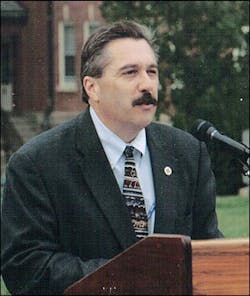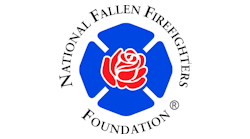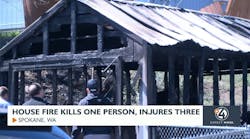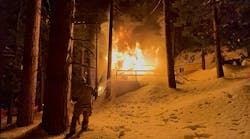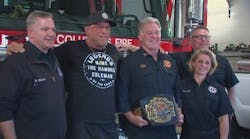I recently read a book about a scrappy professional football team that became a dynasty nearly 40 years ago. It shed light on how a diverse group of players with sheer talent and passion for the game and their steadfast leadership achieved superstar status on the gridiron for over a decade.
Of course, I’m talking about my beloved Pittsburgh Steelers. Like them or not, there’s no denying that even now, the achievements of that team still have an indelible impact on the sport and many coaches, players and fans nationwide.
As I read, “Their Life’s Work: The Brotherhood of the 1970s Pittsburgh Steelers, Then and Now” by Gary Pomerantz, I was struck by how much a football team is like the fire service. Certainly there are the shared experiences of being on the field or on a job that develop into valuable relationships. The football or fire service “family” that runs deep. But it’s more than that.
Regardless of what team you root for or whether you even like football, I think we can find parallels between the roles of the players on the field and the roles of the firefighters on an incident. In particular, I see a distinct analogy between the company officer and the quarterback.
The quarterback’s main job is to pass the ball to the intended receiver or hand it off to the runner, ultimately to score more points. The quarterback is the offensive leader and encourages teammates to perform at the highest level. Whether it’s at practice or in the heat of the game, the quarterback has to stay focused and motivate teammates.
Similarly, the company officer typically knows how to operate most—if not all—of the equipment on the scene and directs the crew to do their jobs. Likewise, the officer encourages everyone to do their best. During training and drills, conversations at the kitchen table or in the station, and while working an incident, the company officer must focus on the task, understand the dynamics that are occurring around him or her, and motivate the crew.
Both the quarterback and the company officer are in the middle of the action, seeing the big picture unfold and directing the offensive attack. Whether they’re taking the field for the first down or arriving on the scene of an incident, both individuals must confidently lead a group of people to accomplish a set goal. Further, as they gather or huddle with the group and share the plan of attack, both make sure everyone understands their next steps. They also must anticipate a shift and have plan A, B and even C. If they see what they’re up against—a tough defense that has read their play or an auto crash with multiple entrapments—they must be prepared to “call an audible” at the line of scrimmage or on the scene.
They have to communicate effectively with the people on the field and the people in the offices. They must share information with the coaches on the sidelines or the chiefs on scene to ensure the next steps are warranted. They must give and take instructions that may not be popular but are best for the unit.
Quarterbacks are coached and mentored from a very early age. Along with pure talent, they have to train rigorously to win the spot. Maybe we need to treat all our potential company officers like quarterbacks if they’re going to be successful leaders. Maybe we need to be coaches for these men and women. Most importantly, we also need to lead by example.
There are many departments that recognize potential officer candidates among their members and help to prepare these men and women for the next steps. They offer guidance, training and expect the candidates to pass thorough written and practical exams. But this approach isn’t standardized. That can change.
We must encourage candidates to not simply read the Life Safety Initiatives (LSIs) but to embrace them. The officer sets the tone for safety and accountability through words and actions. Making the LSIs routine needs to be a priority in the culture of firefighting. It should become second nature to our officers, just as calling the plays of the offensive line are second nature to our best quarterbacks.
As Chief Charlie Dickinson once said, “This ain’t football, folks. We don’t get a time out. When the bell rings, it’s deadly serious. Anything less than that is unacceptable.”
Pull Quote option: Maybe we need to treat all our potential company officers like quarterbacks if they’re going to be successful leaders.
